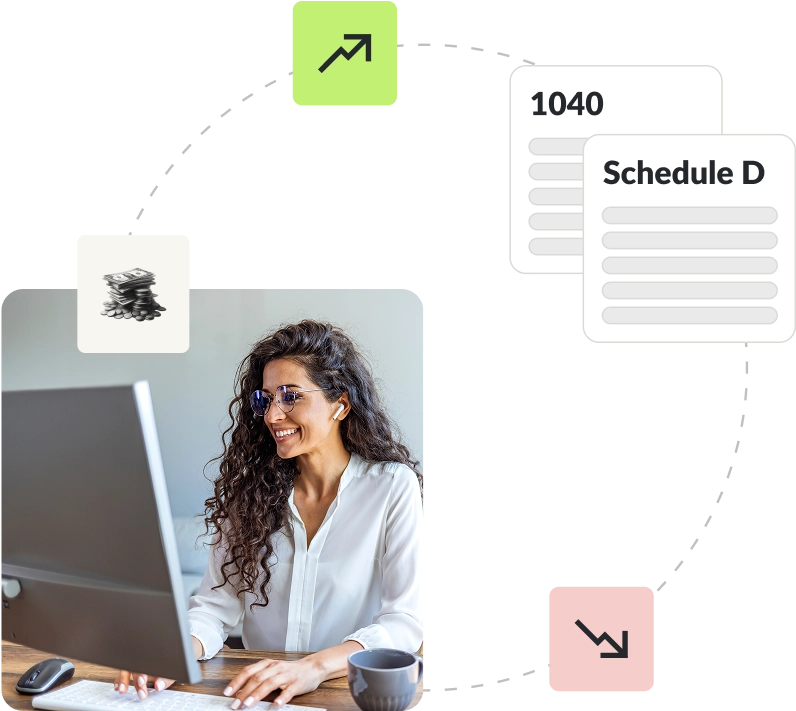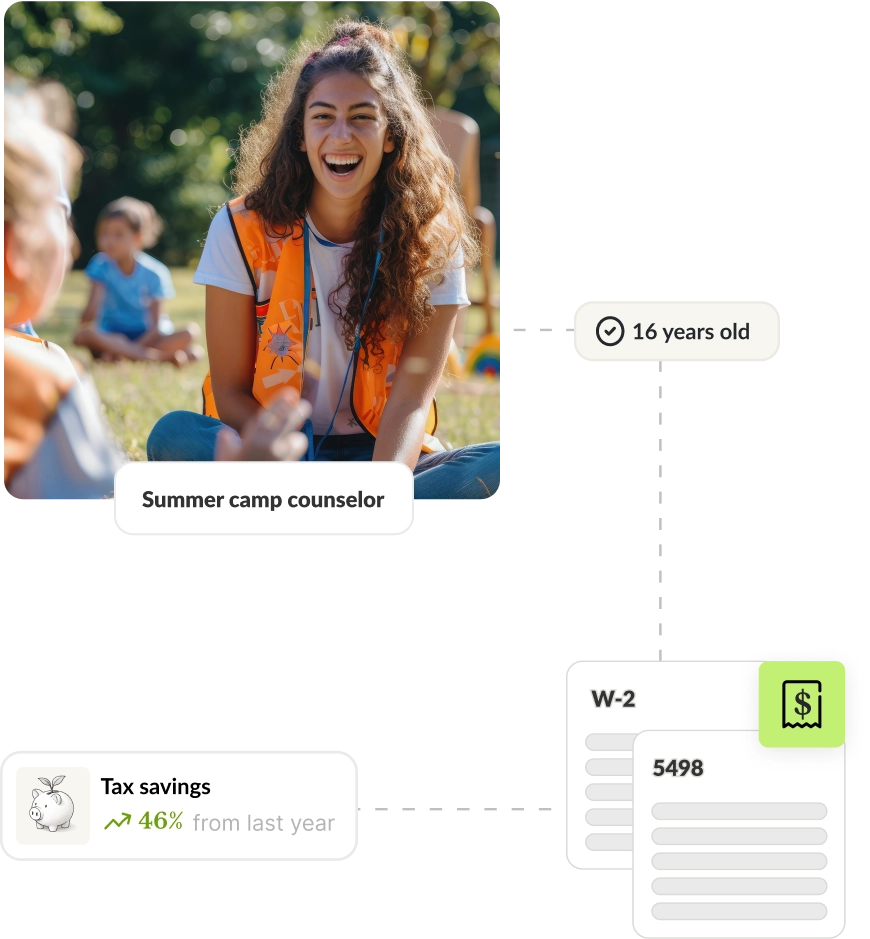2025 Vermont State Tax Deadlines
Vermont Individual income tax filing deadlines and extensions for 2025
If you are a resident or have been involved in business operations within Vermont, you might be required to file Vermont State taxes. Vermont maintains a progressive income tax structure with rates ranging from 3.35% to 8.75% for 2025, making proper planning essential for both residents and businesses. This comprehensive guide outlines the key tax deadlines and considerations applicable to Vermont in 2025.
Vermont business tax deadlines for 2025
C Corporations' deadlines and requirements
C Corporations in Vermont must file and pay Corporate Income Taxes by April 15, 2026.
Filing requirements include:
- Complete Form CO-411 (Vermont Corporation Income Tax Return)
- File online with myVTax system
- File by mail must be postmarked by the due date
- Payment must be made by April 15, 2026
Extension to file taxes in Vermont for 2025
The Extension Deadline for Vermont Corporate income tax returns is November 15, 2026. Vermont automatically grants a seven-month extension on filing Corporate income tax returns if a federal extension is filed. If a federal extension is not filed, request a state extension by filing Vermont Form BA-403 by April 15, 2026. This is an extension to FILE, not an extension to PAY—payment is still due April 15, 2026.
Pass-through entities
Vermont S Corporations and Partnerships tax deadlines for 2025
S Corporations and Partnerships must file in Vermont by March 15, 2026.
Required forms include:
- Form CO-411S (S Corporation Income Tax Return)
- Form CO-411P (Partnership Income Tax Return)
Extension to file S Corporations and Partnerships taxes in Vermont for 2025
The Extension Deadline for Vermont S Corporations and Partnerships returns is September 15, 2026, for S Corporations and October 15, 2026, for Partnerships. Vermont automatically grants extensions if federal extensions are filed. This is an extension to FILE, not an extension to PAY—payment is still due March 15, 2026.
Vermont Individual tax considerations for 2025
Filing requirements and income thresholds
Vermont Individuals must file a State income tax return if they meet federal filing requirements or are claiming certain Vermont-specific credits.
The 2025 standard deduction amounts are:
- $14,850 for Married/Civil Union Filing Jointly or Qualifying Widow(er)
- $7,400 for Single or Married/Civil Union Filing Separately
- $11,100 for Head of Household
- An additional $1,200 for Individuals 65 and older and/or blind
Estimated tax deadline for Vermont 2025
Estimated tax payments are due:
- April 15, 2025
- June 16, 2025
- September 15, 2025
- January 15, 2026
See Form IN-114 instructions for the amount to pay with each voucher.
Who must make estimated payments
You must make Vermont estimated income tax payments during 2025 if:
- You expect to owe more than $500 in Vermont income tax
- Your withholdings and credits will be less than 90% of the current year's tax
- You have significant self-employment income
- You receive income not subject to withholding
Vermont tax planning strategies become crucial for estimated payment calculations.
Individual tax deadline for Vermont 2025
You must file and pay Individual Income Taxes in Vermont by April 15, 2026. Vermont accepts electronic filing through the myVTax system, which processes refunds significantly faster.
Available forms include:
- Form IN-111 (Vermont Individual Income Tax Return)
Extension to file taxes in Vermont for 2025
The Extension Deadline is October 15, 2026, to file your Vermont Individual Income tax return. Vermont will grant a six-month extension if Form IN-151 is submitted by April 15, 2026. This is an extension to FILE, not an extension to PAY—payment is still due April 15, 2026.
What Vermont tax professionals need to know
Several key considerations make Vermont's tax landscape unique for 2025. Vermont's progressive tax system requires careful income planning, particularly for high earners who may be subject to the top rate of 8.75%. The State offers various tax credits, including the Child & dependent tax credits and the Vermont Earned Income Tax Credit.
Electronic filing requirements
Vermont encourages electronic filing through the myVTax system. Benefits include:
- Faster processing times
- Direct deposit for refunds
- Online status tracking
- Reduced paper processing errors
Vermont-specific credits and deductions
Vermont offers several unique tax benefits, including:
- Vermont Child Tax Credit for families with children
- Vermont Earned Income Tax Credit based on federal EITC
- Renter Credit for eligible Vermont residents
- Property Tax Credit through Homestead Declaration
Vermont's unique tax features for 2025
Homestead Declaration requirement
Vermont resident homeowners must file a Homestead Declaration each year by April 15, 2026, even if they don't need to file a personal income tax return. This declaration may qualify them for a Property Tax Credit and helps save on local property taxes.
Community property considerations
Vermont recognizes civil unions and marriage equality, providing specific guidance for tax filing statuses and home office deductions for couples.
Special provisions for farmers
If at least two-thirds of your gross income is derived from farming, you may pay estimated tax at any time on or before January 15, 2026. However, if farmers file their tax return on or before March 1, 2026, and pay the total tax at that time, they need not file an estimated tax.
Sources
Don't miss State tax deadlines – Join Instead
State tax deadlines are approaching fast. While you're scrambling to gather documents and figure out complex deductions, you could be missing thousands in potential savings.
Instead's AI-driven platform does the heavy lifting for you—automatically identifying tax strategies, monitoring your accounts for savings opportunities, and ensuring you claim every deduction to which you're entitled. No more guesswork, no more missed opportunities.
The material discussed on this page is meant for general illustration and/or informational purposes only and is not to be construed as investment, tax, or legal advice. You must exercise your own independent professional judgment, recognizing that advice should not be based on unreasonable factual or legal assumptions or unreasonably rely upon representations of the client or others. Further, any advice you provide in connection with tax return preparation must comply in full with the requirements of IRS Circular 230.
Please note that if any due date falls on a federal or state holiday or weekend, it may be adjusted to the next business day. Always verify current deadlines with the appropriate tax professional and authorities.
Looking for a different year?

























